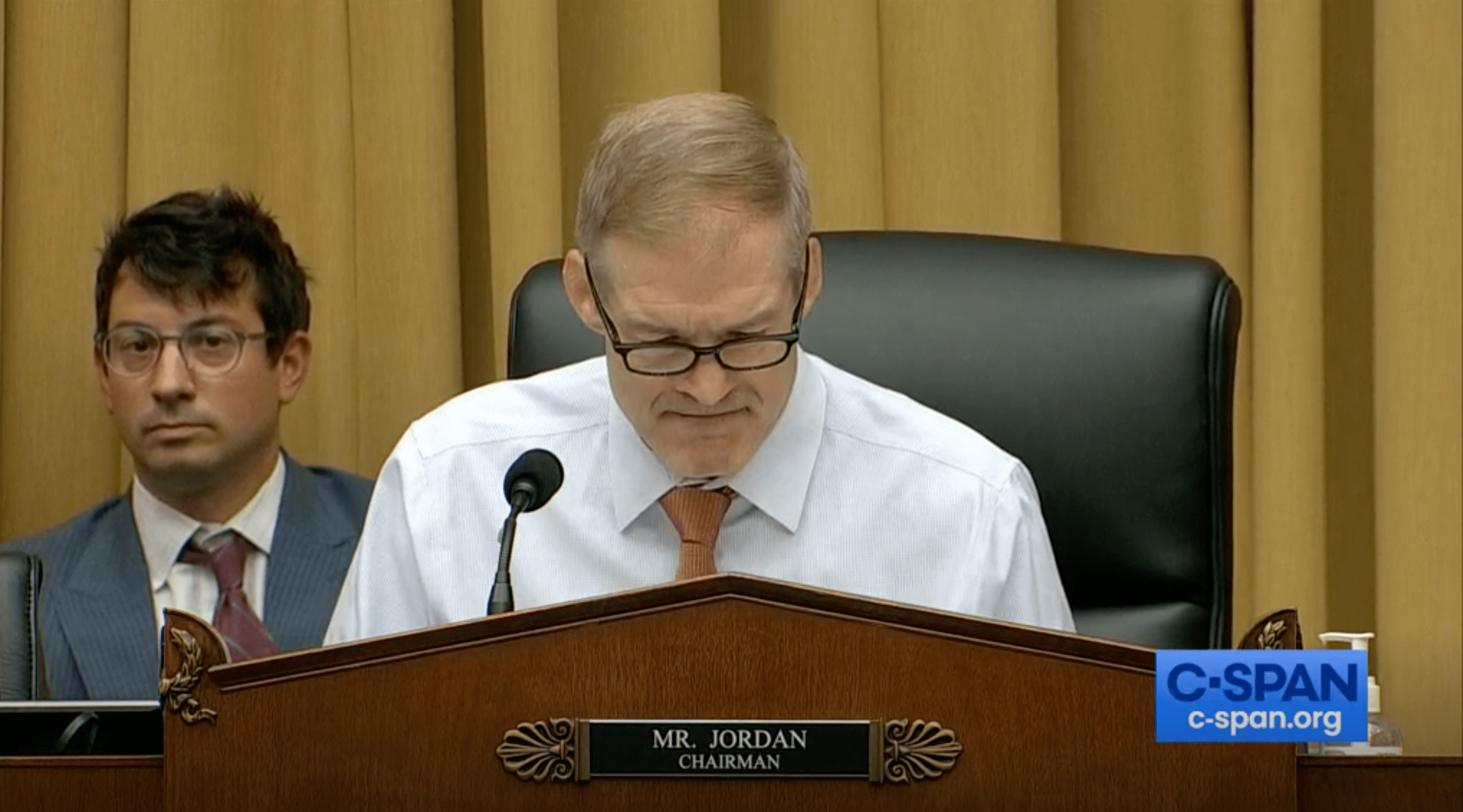
April 15, 2024
Unpacking The Federal Executive Branch, A Conversation With Vanderbilt University Professor David Lewis
Coverage of presidential elections typically hones in on contestants’ competing legislative visions, which in truth, tend to morph considerably when hit by the reality of an intransigent Congress. This prompts an important question: are presidential elections overrated? Well, before drawing that conclusion, consider one of the underrated consequences of a federal election: the potential for a new administration to alter the management of the federal workforce and the operations of individual departments within the executive branch. Although journalists eschew reporting of these consequences in favor of (legislatively focused) policy platforms and rallies, there is a wide body of academic research which investigates the impact of presidential administrations on the federal executive branch’s ability and capacity to fulfill its roles and responsibilities.
April 03, 2024 | Revolving Door Project Newsletter
Who’s Afraid of the “Deep State”?
Show me a politician rabble-rousing about “unelected bureaucrats” running the country, and I’ll show you someone who wants those bureaucrats to be serving their interests, not the country’s. Show me a company crying foul about government overreach, and I’ll show you a company trying to get away with—in some cases, literally—murder.
March 06, 2024 | Revolving Door Project Newsletter
Throwing the Public’s Defenders Under the (Mini)Bus
By Friday, Congress needs to vote on a proposed “minibus”—a package of six out of the 12 necessary government spending bills for fiscal year 2024—to avoid a partial government shutdown. We’ve got a handy explainer of all the federal budget terms you wish you didn’t need to know, from “minibus” to “poison pill” to the Fiscal Responsibility Act of 2023, which is the reason why our country’s grotesque military budget is getting a $26 billion boost up to $886 billion, while non-defense spending is getting a $4 billion cut, down to $773 billion.
While there are plenty of damning narratives to derive from the latest in government appropriations dysfunction, there is one story in particular that we’re anxious to see told by the White House and Congressional Democrats, and it’s this…

February 21, 2024 | The New Republic
A Return to Trump’s Housing Policies Would Be a Disaster
The former president made his name as an unscrupulous real estate magnate. So it’s no surprise that he pushed for ideas designed to take from the poor and give to the rich.

January 10, 2024
Blog Post Climate and EnvironmentCongressional OversightCorporate CrackdownGovernment CapacityHousingIRS
Glossary of Useful Federal Budget Terms
Learning about the federal government’s budget process can be daunting. Here are a few key terms to help better understand of the federal budget process as of late.


November 15, 2023 | RDP Newsletter
We Can’t Let Budget Negotiations Make A Punching Bag of Agency Capacity
As negotiations to prevent a government shutdown heat up once again, Democratic and Republican Representatives in the House are poised to make a play on agency resources.
November 02, 2023
Reporters Must Reject Republicans Unearned “Fiscal-Hawk” Self-Branding
The media should reject unearned ‘fiscal hawk’ self-branding and demand Johnson and other Republican leaders address how their attacks on the capacity of the executive branch are deleterious for all but the richest and most rapacious among us.

October 09, 2023 | The American Prospect
America's Pipelines Are a Disaster Waiting to Happen
The underfunded agency overseeing tens of thousands of miles of dangerous pipelines has not had an official leadership for years.

September 29, 2023
Blog Post Administrative LawConsumer ProtectionCorporate CrackdownExecutive BranchGovernment CapacityLabor
MAGA-Engineered Government Shutdown Will Make October a Great Month to Be a Corporate Criminal
The forces that stand to benefit most from a Republican-imposed government shutdown are corporate miscreants—a fact that President Joe Biden and his Democratic surrogates should point out.

September 29, 2023
Kenny Stancil Emma Marsano Jeff Hauser
Press Release Administrative LawConsumer ProtectionCorporate CrackdownExecutive BranchGovernment CapacityLabor
RELEASE: Watchdog Group Warns MAGA-Engineered Shutdown Will Make October a Great Month to Be a Corporate Criminal
Joe Biden must be direct with voters and tell them that the worst actors in corporate America are the biggest beneficiaries of the Republican shutdown.

September 27, 2023 | Revolving Door Project Newsletter
New Watchdog Reports Highlight Insufficient EPA Enforcement Ahead Of Shutdown
Corporate greed and emaciated federal regulatory capacity means people are needlessly suffering physically, and sometimes even dying. That’s the upshot of two recent reports from the EPA’s Office of the Inspector General (OIG). These reports illustrate the concerning state of environmental regulation and enforcement in regards to water quality and refinery emissions.

August 16, 2023 | Revolving Door Project Newsletter
Toni Aguilar Rosenthal Hannah Story Brown
Newsletter Confirmations CrisisGovernanceGovernment Capacity
Delayed Confirmation of Biden Nominees Both Common and Costly
On July 25, 2023, military leaders in Niger, along with members of the Presidential Guard, enacted a coup against President Mohamed Bazoum. Led by General Abdourahamane Tchiani, a Nigerien military officer and self-appointed President of Niger’s military junta, coup plotters detained the democratically-elected President Bazoum, as well as members of his family, threatened to kill him in the event of any military intervention in the coup, and most recently put him on trial for treason.
Despite widespread rumors of an emergent coup in the country, the United States was reportedly “blindsided” by it, and scrambled to respond. Of course, American intel regarding the actual political atmosphere of the country was hindered in no small way by the lack of State Department personnel staffing embassies in the region.

August 09, 2023
The Small Business Administration Needs To Increase Its Capacity, Not Lending Authority To Fintechs
Continued reliance on underregulated financial technology companies could stand to further harm the agency’s reputation and goals for lending equity.

August 02, 2023 | Revolving Door Project Newsletter
Following Failed Hearing, Jim Jordan And Republicans Try New Tacks To Take Down Khan and Kanter
Two weeks ago, Federal Trade Commission (FTC) Chair Lina Khan entered a House Judiciary Committee hearing with a target on her back. In the leadup to the hearing, Republicans readied their trumped-up attacks against Khan and the agency she leads: a barely relevant memo from a conflicted ethics officer, a list of unfounded grievances from bitter former Commissioner Christine Wilson, and absurd defenses of Elon Musk’s lazy privacy practices at Twitter. But Khan emerged unscathed, and by the end, the Republicans had lost all their fire.
